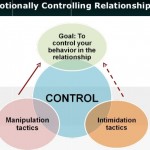Domestic abuse is one of the most undermined forms of abuse and women oppression- rarely spoken about, and even when it is, it is dismissed in more cases as being a ‘personal’ matter rather than an issue of immense social concern. In most cases, it is the husband or the male member in a relationship who is found wielding physical violence and mental torture on their female partners, in the event of which it is imperative to extract the victim from the situation and expose the crime, for domestic abuse is nothing short of a serious felony.
There are a lot of moral complications when it comes to domestic abuse. In case of married couples, the women doubt their decision to go public with their husband’s misbehavior for their marriage is a socially binding institution, and one that symbolizes trust and love. It automatically entails doubt about the victim’s claims, which is dangerous, because it may incite more anger in her abusive partner, and she might not even be able to get help, ever, in the process.
Suggested read: 20 definite signs of emotional abuse in a relationship
One of the first things that people who face domestic abuse do, is talk to the people they love for some sort of support, love, companionship and empathy for their situation. If you are one of those people, and your loved one is a victim of domestic abuse, here is everything you need to know to help them get relief from their situation.
DOs
1. Be a patient and trustworthy listener

Image source: Google, copyright-free image under Creative Commons License
Domestic abuse is something which also compels the victim to keep silent about the way in which they are being treated. If you suspect that someone is being abused, or they have told you directly that they are, indeed, it is your responsibility to establish yourself as a patient and trustworthy listener. Impatience or asking them to jump to action or not talk about their fears and problems will only intimidate them further, for they are likely to be in a precarious state of mind. You also have to gain their trust before they can fully divulge their story to you.
2. Reassure them that the abuse is not their fault
A lot of the times, victims of domestic abuse are afraid of coming out with their stories and complaining about their partners because they fear that they are at fault. This might be either because the partner has told them so, or because they feel their problem is a personal and emotional one, in which they too had a part to play. In order to make them feel better, tell them that whatever is happening with them is not their fault, because nothing should provoke physical and mental violence, no matter how trying the situation is.
3. Offer her some real help

Image source: Shutterstock
Because a domestic abuse case is not like a universally appealing case, and as an objective listener, you can do very little to help your loved one and save them from the situation, you can offer very little productive help when it comes to saving them from their situation. What you can do is offer all the kind of help you can, which doesn’t include interfering in the problem itself. You can offer them a lot of things little things, which can help them take on every day with a little more ease than before. For example, you can offer transportation, you can offer to babysit their children if they have any, and if you are able, then you can even offer meals and invite the victim over frequently in order to save her from her domestic situation.
4. Help them chalk out a safety/escape plan
I am not asking you to dig a trench under their house and smuggle them out, but it is important that you offer some real, constructive advice as well. This can include calling the police, or discussing with them whether they are comfortable about going to the police with their problems or not. You can also help them pack a bag of essentials, which they can take if they need to escape from a particularly dangerous home situation. Most importantly, ensure that you help them reach a conclusion about their situation, so that they don’t have to continue like this.
5. Be supportive, no matter what she decides to do
Your primary function as a confidante for a victim of domestic abuse includes being supportive and caring and gentle and kind. These are the things which they have been robbed off in their home front, which is why you need to ensure that you embody all the above. After you have helped them out in every possible way, you have to leave the decision up to them, and be supportive no matter what they choose to do, unless they explicitly ask for your advice. Even if they don’t follow it, you have to make them feel like you will be with them, no matter what.
Suggested read: 6 surefire signs of an abusive relationship you MUST be aware of
DON’TS
6. Don’t try to solve the problem yourself

Image source: Shutterstock
When you speak to a victim of domestic abuse, it is likely that you will feel angry and instigated to take things into your own hands, and get involved in the matter yourself. You might even feel morally obligated to do so for it is your loved one who is being tortured in this manner. It is very important that you stay aloof, neutral and objective as far as the actual matter is concerned because it might antagonize the abuser even further. Your direct involvement might even distance you from the victim, because in order to not let you get involved, they can start omitting facts from their story.
7. Don’t rush them into taking decisions
Another thing that you must avoid doing at all cost is rushing them into deciding on an immediate plan of action, barely after they have finished telling their story. To you, it might seem natural that after revealing it to you, they should want to expose their partner to the entire world and save themselves, but they may not be mentally prepared, which is more likely. Whether it is talking to a professional psychiatrist or the police or social services, it is important that you help them explore their options of relief, instead of coercing them into taking a decision then and there.
8. Don’t try to force your opinions on them
You have to remember that it takes victims of domestic abuse a lot of courage to speak up about the problems they face, and go into the details of their experiences. It might even take years. After they do divulge it however, you are likely to come up with a lot of opinions of your own, which you have to rein in as much as possible. The more you try to tell them what you think and what they should have done instead of talking to you and what they can do in the future, the more intimidating, withdrawn and reticent they will become, and that is the last thing you should make them feel, especially when they are already in such a fragile state of mind.
9. Don’t judge them for their past decisions

Image source: Google, copyright-free image under Creative Commons License
When someone tells you about how a loved one has been abusing them in the private space of their home, an instinctive reaction would be to wonder why they loved such a person in the first place. When you make your thoughts vocal to the victim however, you take part in what is called victim shaming, which is almost as bad as not believing them when they say how they were abused. Signs of violence may or may not be apparent at the start of a relationship, so questioning their decision to be with the person after they have been abused is quite redundant. Neither does it pose any viable solution to the immediate problem, nor does it make the victim feel any better. If anything, it makes them even more miserable.
Suggested read: My screams against marital rape: A marital rape survivor’s diary
10. Don’t criticize them if they decide to stay with their partners
The reason the victim came to you and not anyone else after they were attacked, is because they depend on your composure and your advice to understand how they should proceed, and also to share their grief and in the process, get some form of relief from the pain they have to go through at home. It is understandable that you feel strongly about the injustice that is done to them, but you have to be considerate when passing judgement. Reprimanding them in case they decide to continue with their partner calls for you to act with utmost discretion because they have taken their own decision and your duty is to be there for them.
Cases of domestic abuse are extremely delicate and as a person who has been sought out by the victim to share in their grief, it is your duty to be sensitive, kind, patient and discreet when you are dealing with them.
Featured image source: Google, copyright-free image under Creative Commons License












